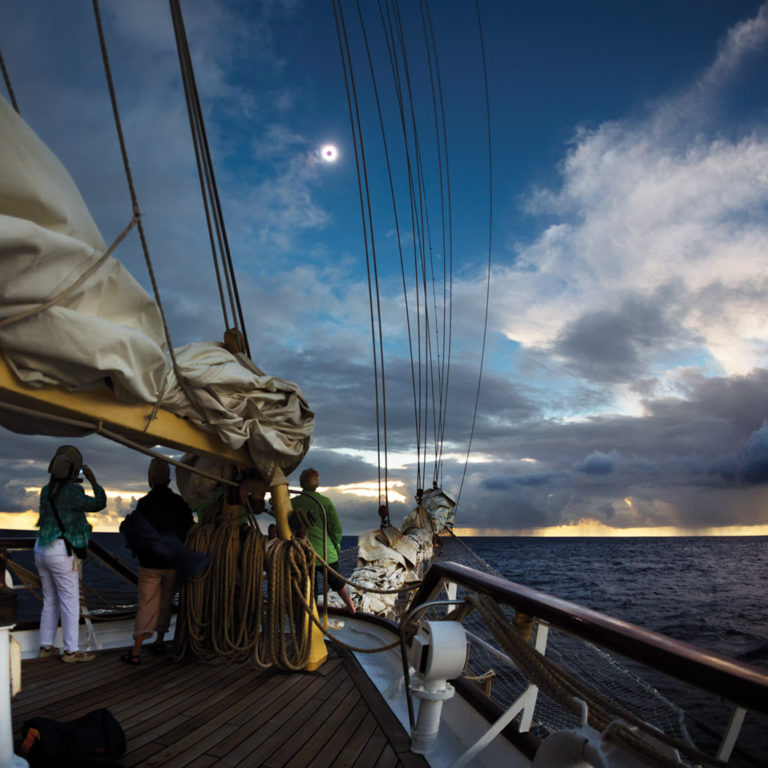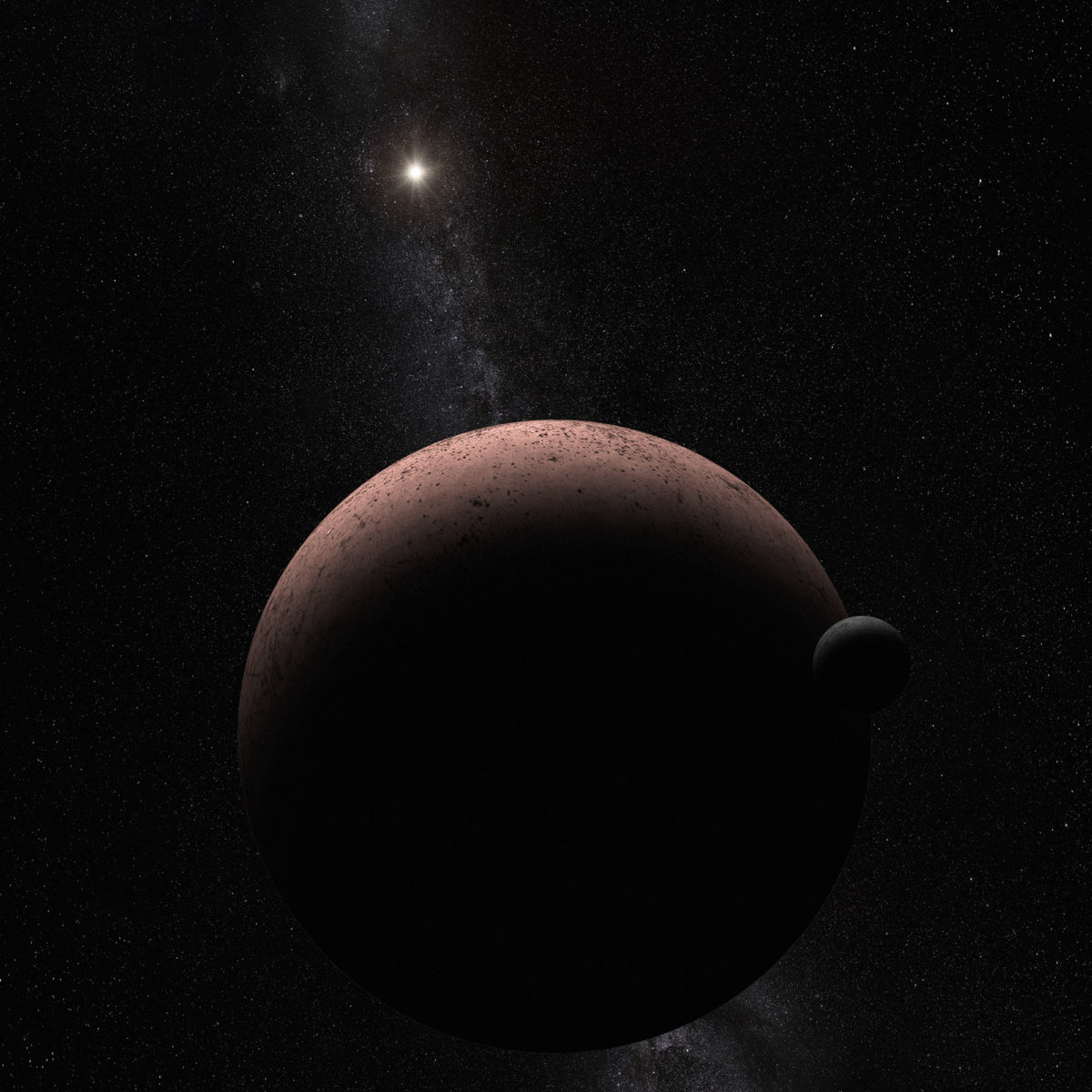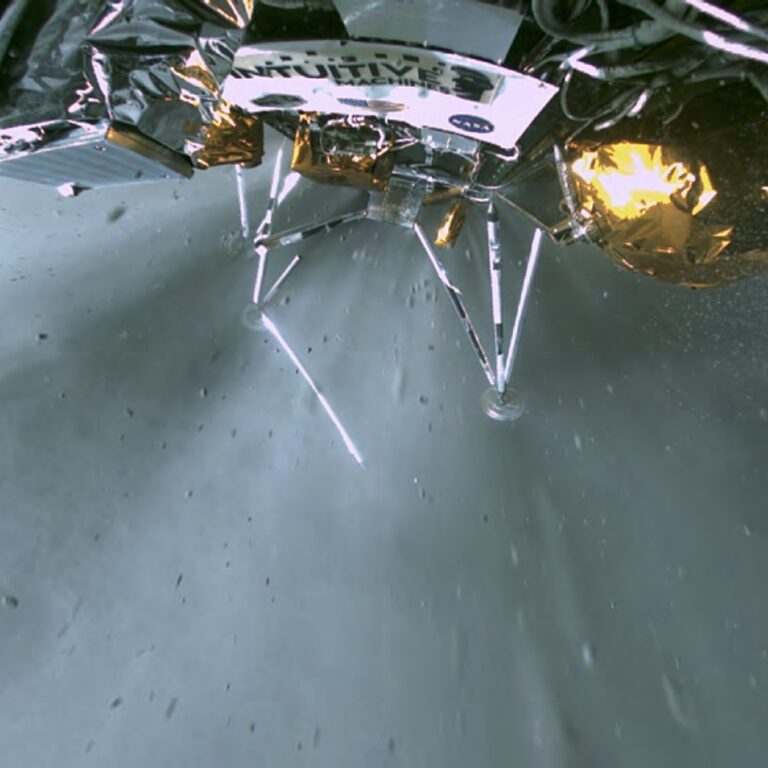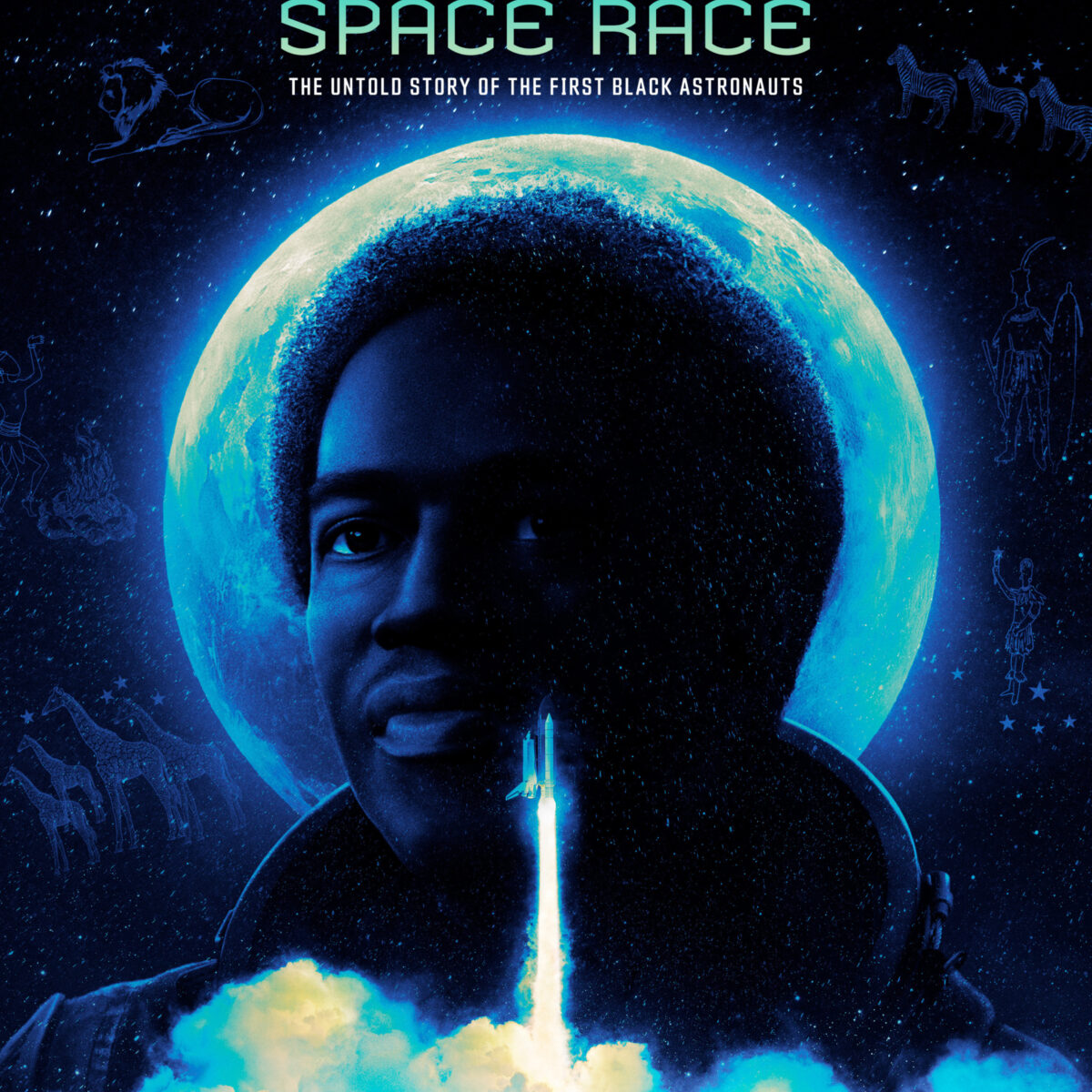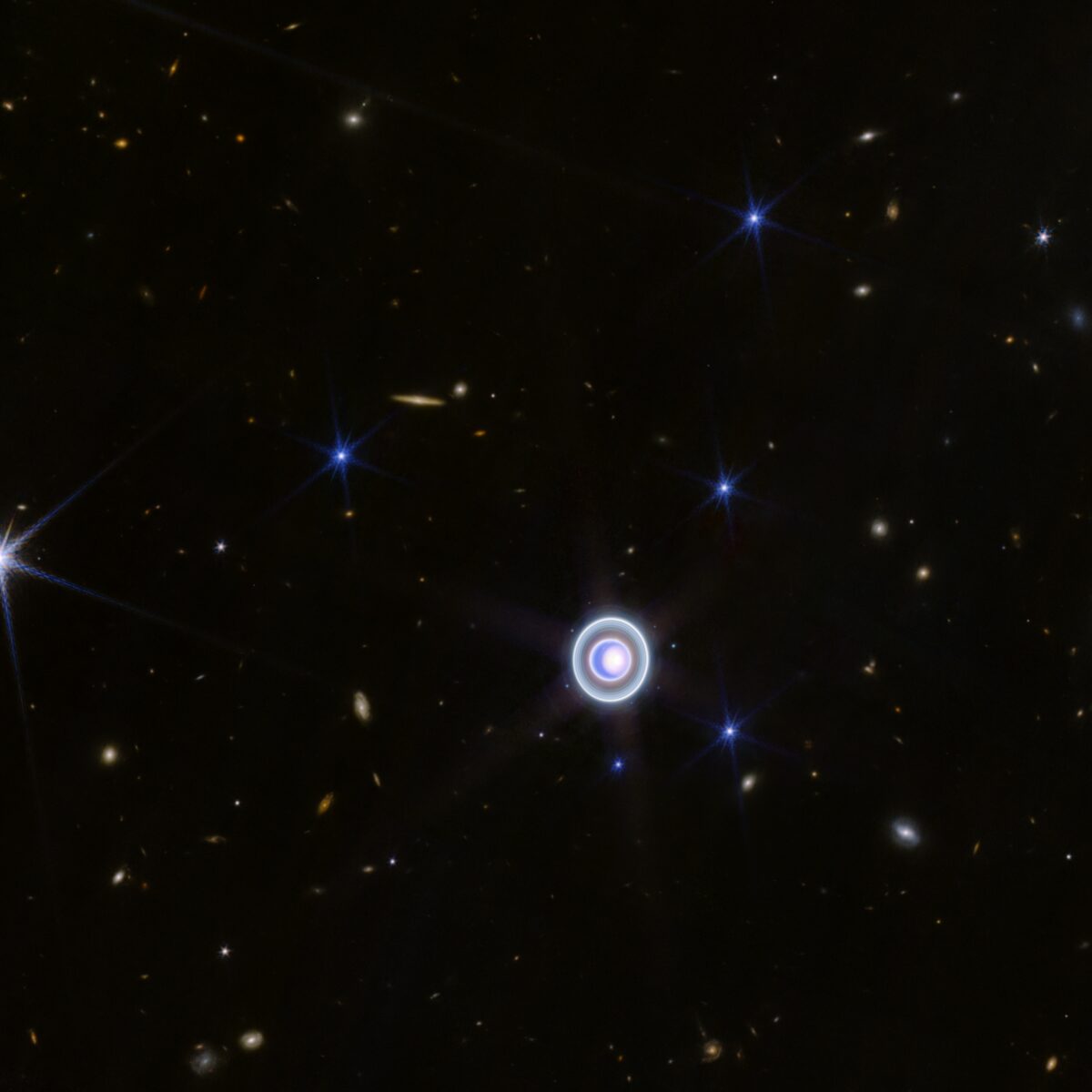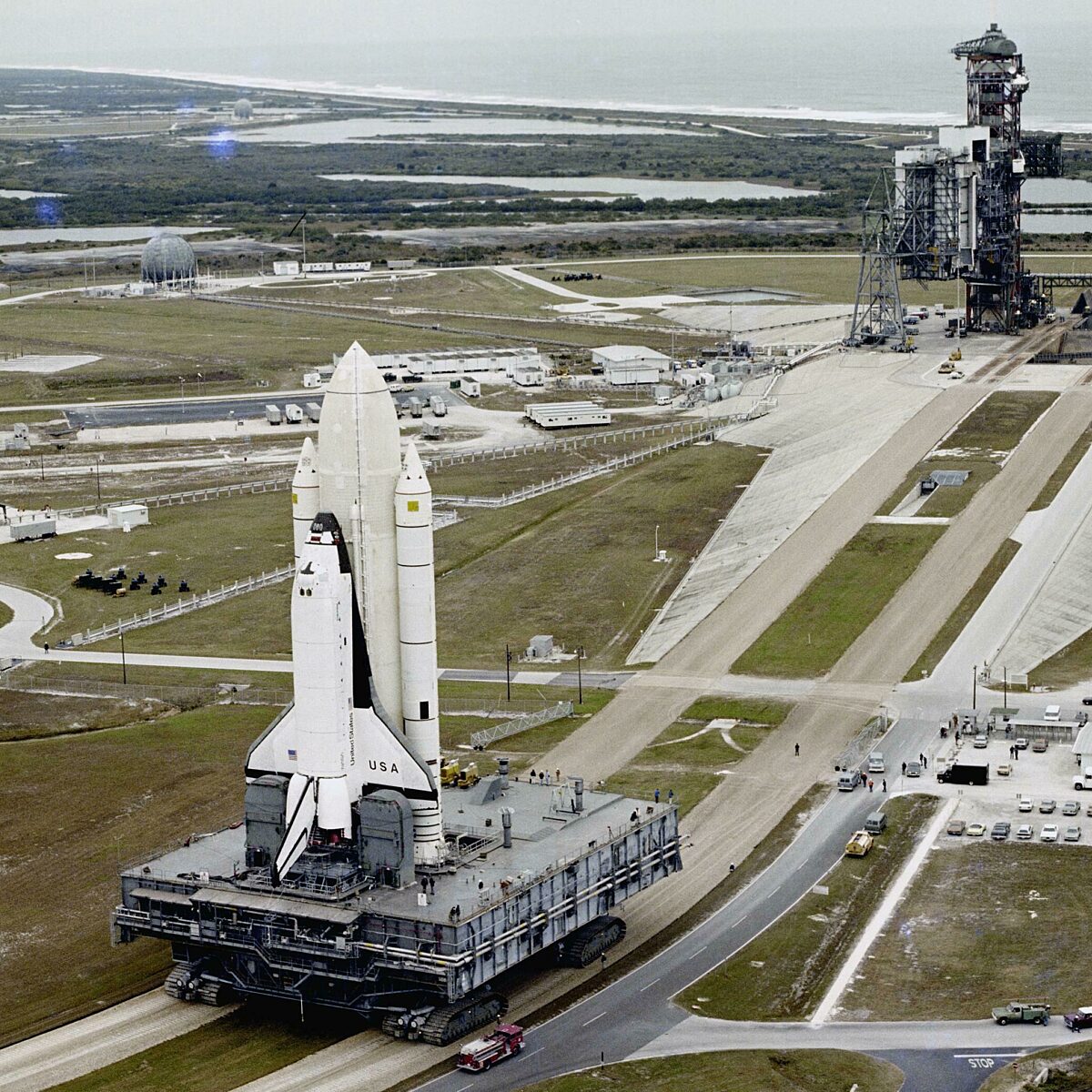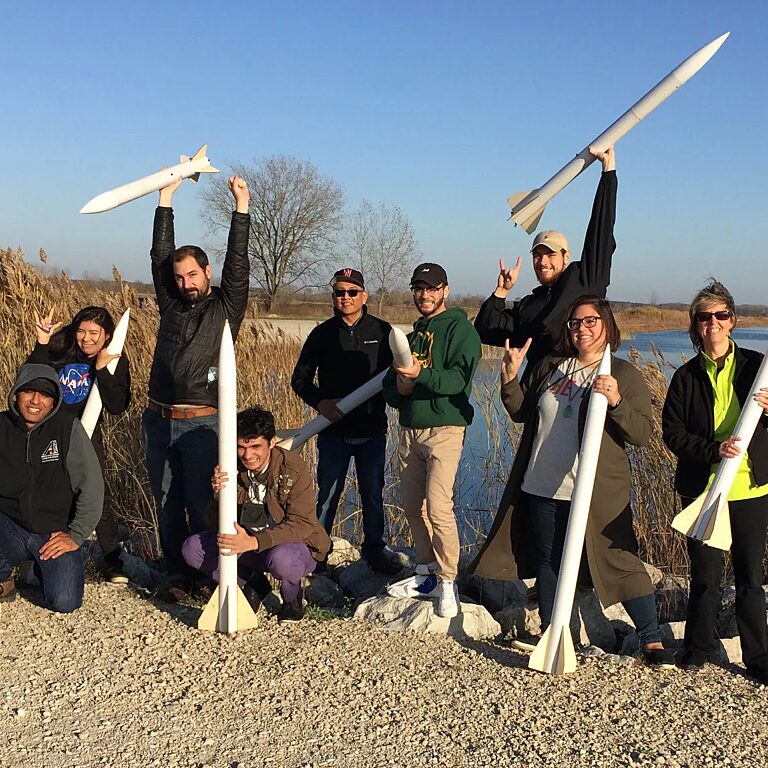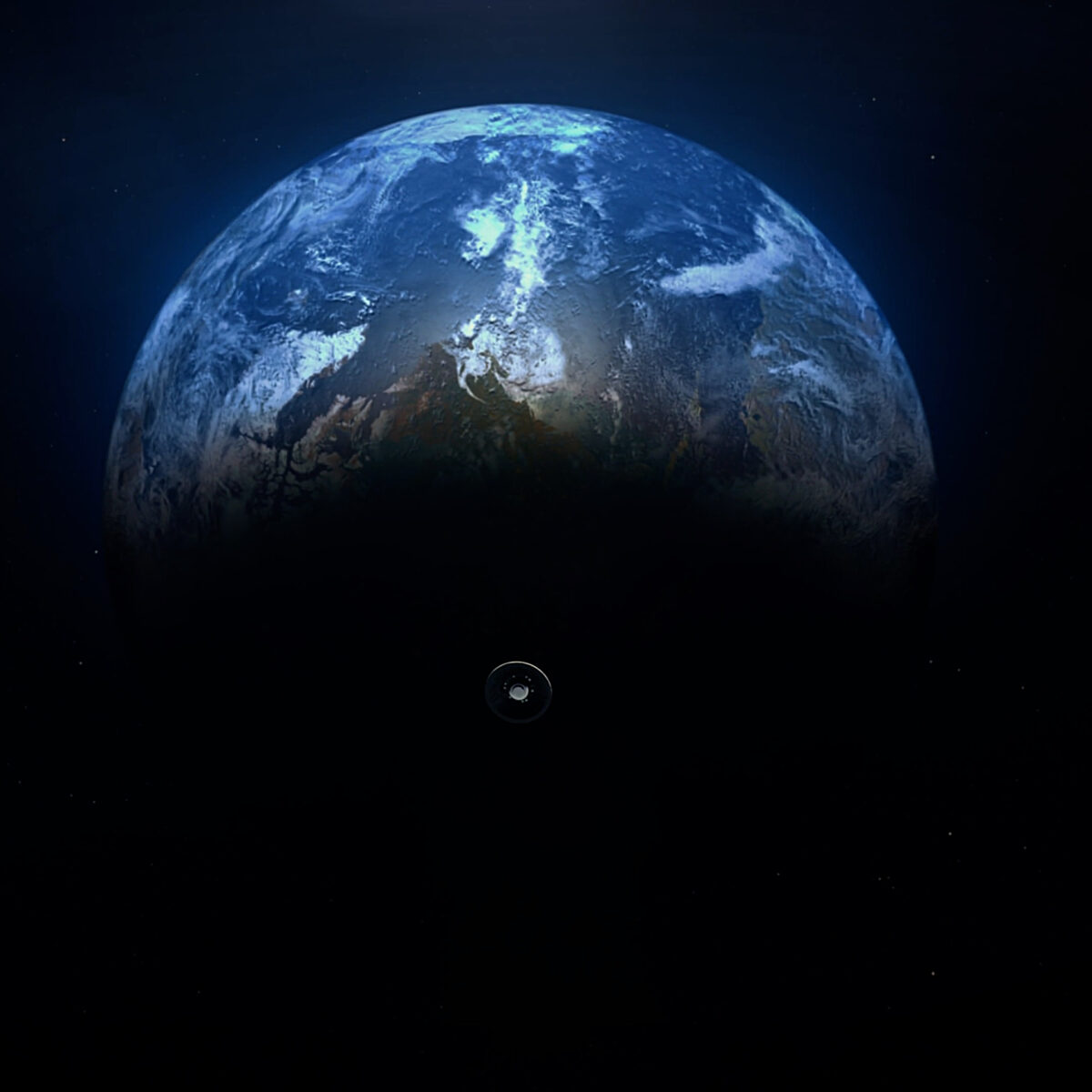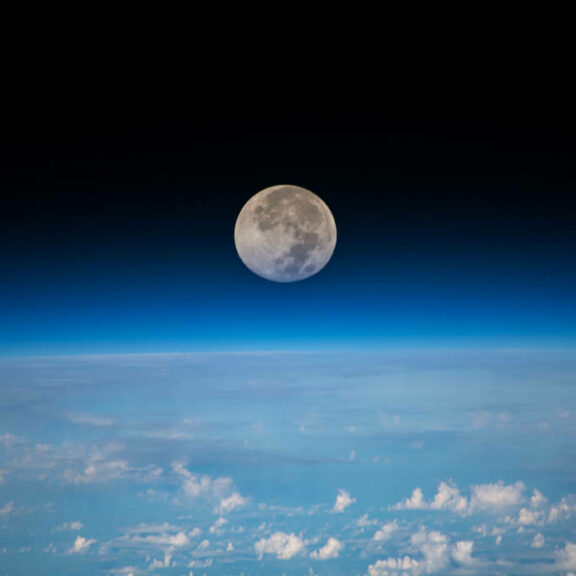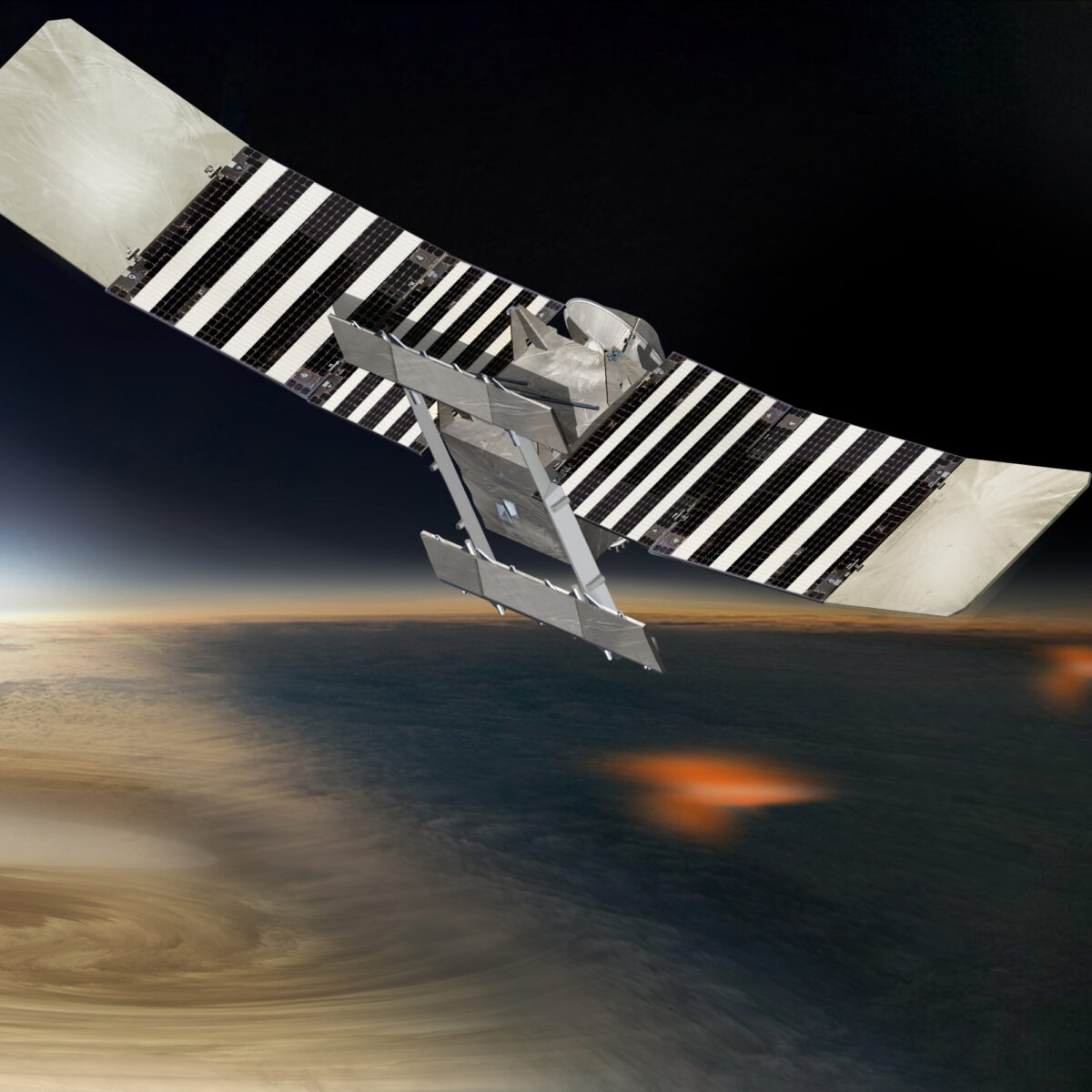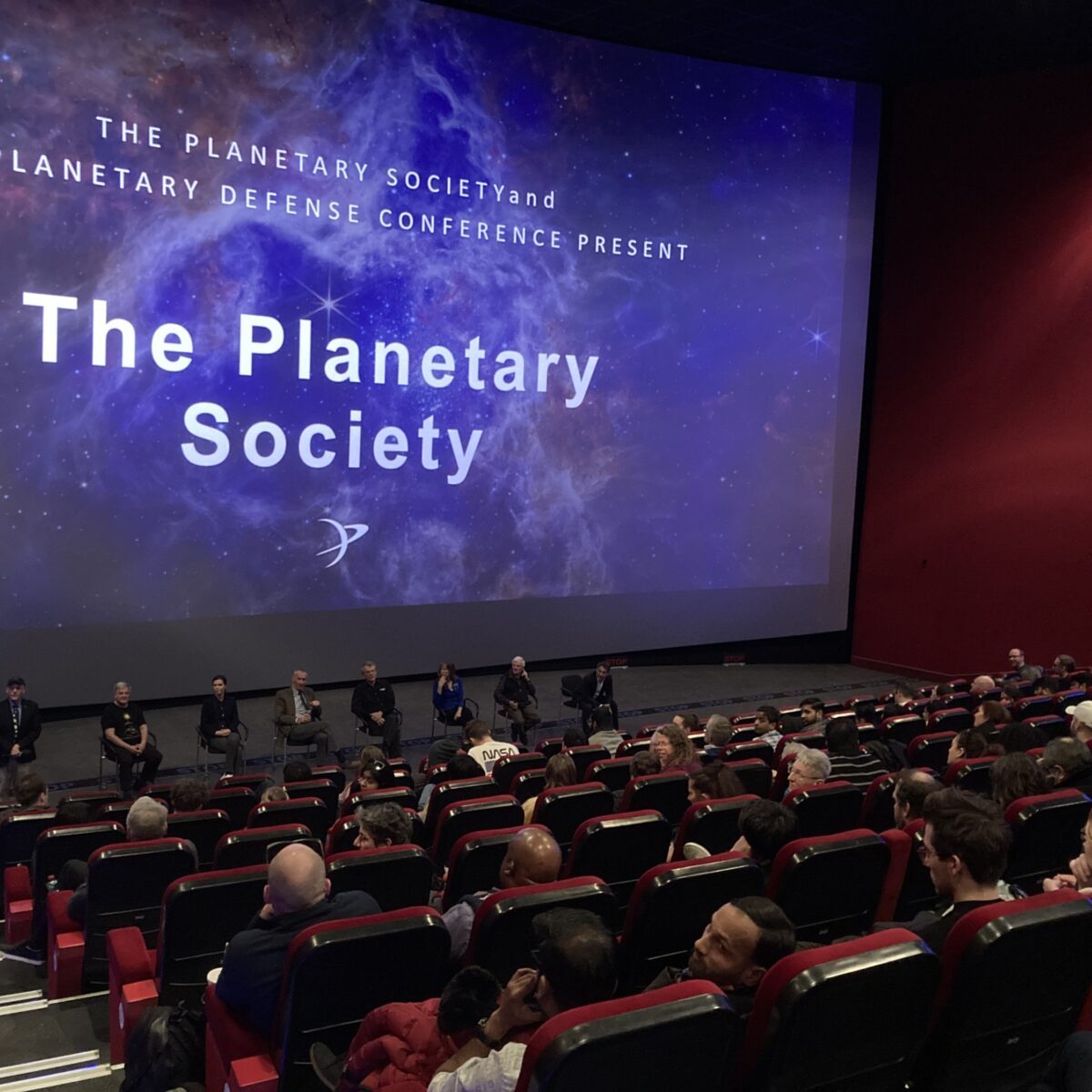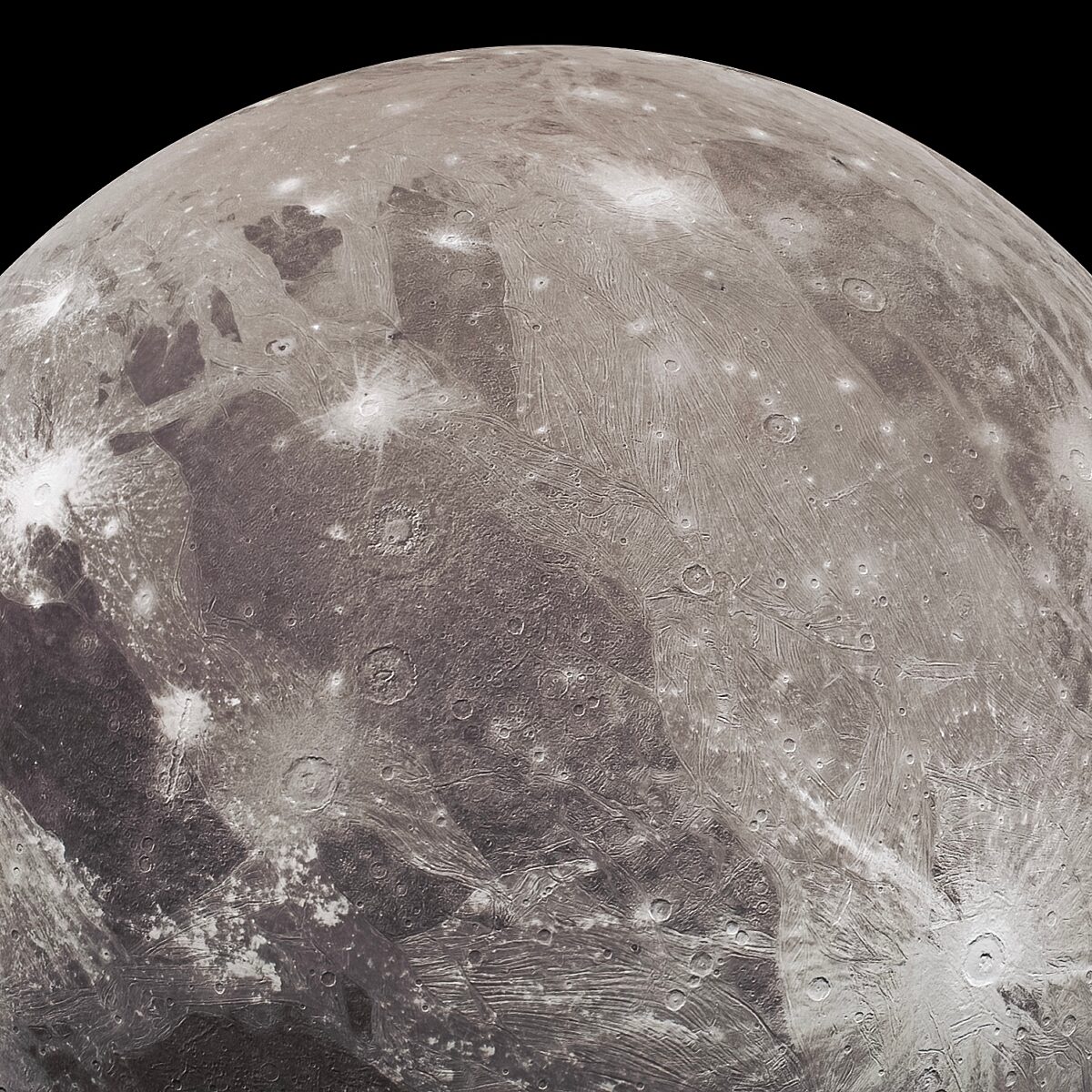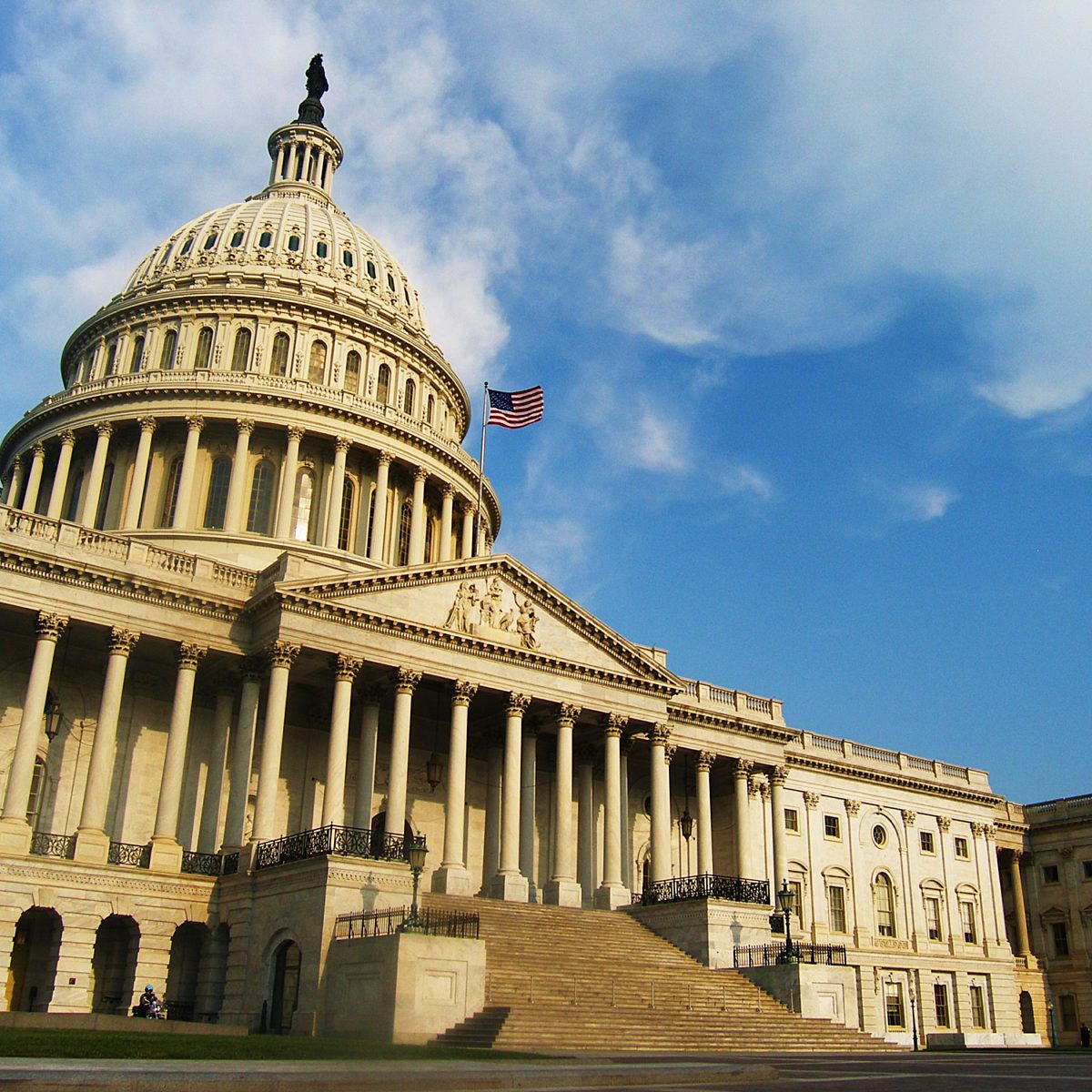Since 2002, Planetary Radio has visited with a scientist, engineer, project manager, advocate, or writer who provides a unique perspective on the quest for knowledge about our Solar System and beyond. The full show archive is available for free.
Search Planetary Radio
Should policymakers spend more time looking - really looking - at the Moon? Chris Cokinos thinks so. He’s the author of a new book, Still As Bright, which explores the evolving role of the Moon in our culture, our history, and our dreams of spaceflight.
Former NASA Administrator Mike Griffin discusses his claim that there is a tension between the so-called Real reasons that motivate spaceflight and the prosaic, Acceptable reasons used to justify space exploration within the public sphere.
Jim Bell, a professor from the School of Earth and Space Exploration at Arizona State University and former president of The Planetary Society's Board of Directors, shares captivating tales from his global eclipse-chasing journeys.
A team co-led by the Southwest Research Institute has made a groundbreaking discovery, revealing evidence of hydrothermal or metamorphic activity on the icy dwarf planets Eris and Makemake in the Kuiper Belt. The lead author of this research, Chris Glein, joins Planetary Radio to explain.
Science historian Dr. Matt Shindell joins the show to discuss the unique era of commercial lunar exploration, and how planetary exploration has evolved and can continue to evolve on and around the Moon.
This week on Planetary Radio, we take a peek behind the scenes at National Geographic's new documentary, “The Space Race,” which celebrates the triumphs and struggles of the first African-American space pioneers and astronauts.
Space policy expert Laura Delgado López joins the show to break down the new paper, “Clearing the Fog: The Grey Zones of Space Governance” by Jessica West and Jordan Miller.
We're celebrating lunar missions and the space advocacy that helps make them happen this week on Planetary Radio.
Members of The Planetary Society staff revisit some of 2023's most exhilarating moments and groundbreaking discoveries in space this week on Planetary Radio.
Though the Space Shuttle program lasted 30 years and built the ISS, it fell short of NASA's goals for cost, reusability, and reliability. Can a program be both a worldly success and a policy failure? In this Space Policy Edition, we dissect a classic space policy paper and debate its relevance today.
Steven Smith, an Education Specialist from NASA's Science, Technology, Engineering, and Mathematics (or STEM) Program, joins Planetary Radio to share some of the unique opportunities available for students in the lead-up to humanity's return to the Moon.
NASA's Mars Sample Return mission is both a top priority and seriously troubled. Independent review board chair Orlando Figueroa joins us to talk about the challenges and what must be done.
Kevin Trinh from Arizona State University joins Planetary Radio to discuss his research into Europa's formation history and the consequences for the moon's habitability.
Scott Pace, the prior executive secretary of the National Space Council, discusses why Artemis is of strategic value to U.S. national interests — and why the Moon is unique as a destination to drive global space exploration.
We check in on the congressional budget process for NASA, Mars Sample Return’s spiraling cost growth, and the impending end of the regulatory holiday for human commercial space launch companies.
Darby Dyar, Deputy Principal Investigator for NASA's VERITAS mission to Venus, joins Planetary Radio to share the human story behind the spacecraft and make a case for saving the mission.
Planetary Radio creator Mat Kaplan shares a look behind the scenes at the 2023 Planetary Defense Conference in Vienna, Austria.
Join us as we celebrate the successful launch of the European Space Agency's Juice mission with project scientist Olivier Witasse.
Jean Toal Eisen, former senior staff on the Senate Appropriations Committee, joins the show to reveal the decision-making process, priorities, and motivations of those who control the U.S. space program's funding.
Dr. Erika Nesvold, astrophysicist and author of the new book Off-Earth: Ethical Questions and Quandaries for Living in Outer Space explores the ethical challenges facing our species as it dips its toe into living beyond our home planet.


 Explore Worlds
Explore Worlds Find Life
Find Life Defend Earth
Defend Earth




